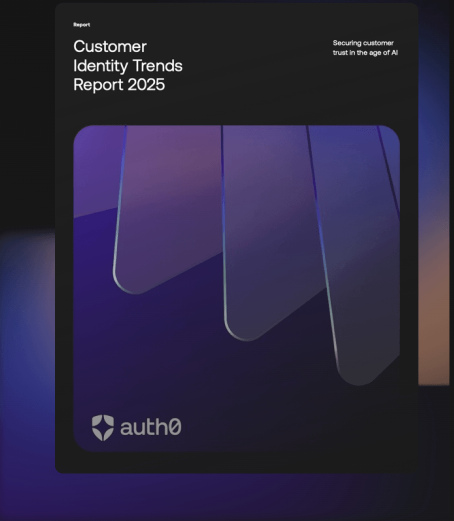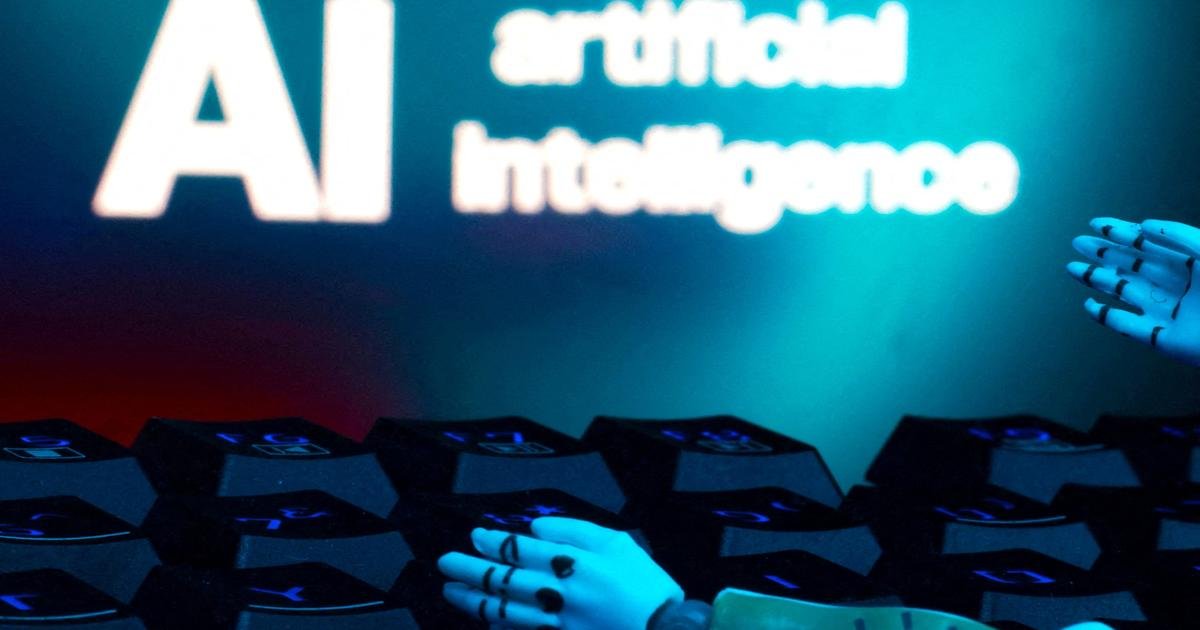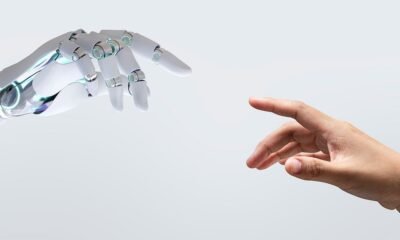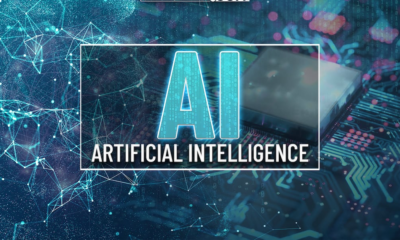AI Research
Australians Reuse Passwords and Don’t Trust AI Agents: New Okta Research Reveals a Digital Trust Deficit

GUEST RESEARCH: Australians are continuing to expose themselves to avoidable cyber risks, with poor password practices and deepening distrust of AI agents creating new challenges for digital security and experience, according to new research from identity provider Okta.
The 2025 Customer Identity Trends Report surveyed over 6,700 consumers globally, including 1,000 in Australia. It found that 67% of Australians admit to reusing the same password or a small number of passwords across multiple personal accounts, significantly increasing their exposure to attacks. Despite growing adoption of digital tools and services, many consumers remain uncomfortable with how their data is handled, particularly by AI.
One in four Australians (25%) say they would avoid using AI agents altogether, while 54% say they do not trust these agents with their personal information. The findings reflect a growing “digital trust deficit,” as the convenience of AI-powered services clashes with user expectations for transparency and security.
“Businesses are embracing AI to drive efficiency and innovation. However, if identity and trust aren’t built into these interactions from the start, they risk creating vulnerabilities and losing the trust of the very customers they aim to serve,” said Mike Reddie, Vice President and Country Manager, Okta ANZ.
“Australians want control, transparency, and security when it comes to AI. Trust can be earned, and identity is where it starts,” Reddie added.
The research also shows a disconnect between digital behaviours and users’ perception of security:
- 76% of Australians still use passwords for personal accounts, but just 55% believe they’re secure.
- The top reasons for password reuse are difficulty remembering multiple logins (47% and lack of time (33%).
- 62% of consumers say lengthy or complex login processes lead to frustration, and 25% have abandoned a purchase due to login issues. This jumps to 36% among Gen Z users.
- 74% say a company’s reputation and trustworthiness outweigh product value when deciding whether to engage.
“Passwords remain the weakest link in the security chain. Until we move beyond them, with modern authentication, consumers continue to be at risk,” Reddie said.
The report also raises important considerations for businesses adopting AI-powered agents in customer-facing roles. These agents, used in everything from chatbots to onboarding processes, must themselves be subject to strong identity controls. Without authentication, authorisation, and oversight, they risk becoming new attack surfaces for bad actors.
Globally, 60% of respondents expressed concern about the impact of AI on digital identity privacy and security. Notably, 38% said they would be more willing to trust AI agents if a human reviewed or approved their actions.
“Identity connects people, and increasingly AI, to the right resources with the right level of assurance,” Reddie said. “Security is no longer a back-office function; it is the foundation of digital trust, a board-level topic, and the key to driving growth in the AI era.”
The Auth0 2025 Customer Identity Trends Report can be accessed here.
PROMOTE YOUR WEBINAR ON ITWIRE
It’s all about Webinars.
Marketing budgets are now focused on Webinars combined with Lead Generation.
If you wish to promote a Webinar we recommend at least a 3 to 4 week campaign prior to your event.
The iTWire campaign will include extensive adverts on our News Site itwire.com and prominent Newsletter promotion https://itwire.com/itwire-update.html and Promotional News & Editorial. Plus a video interview of the key speaker on iTWire TV https://www.youtube.com/c/iTWireTV/videos which will be used in Promotional Posts on the iTWire Home Page.
Now we are coming out of Lockdown iTWire will be focussed to assisting with your webinars and campaigns and assistance via part payments and extended terms, a Webinar Business Booster Pack and other supportive programs. We can also create your adverts and written content plus coordinate your video interview.
We look forward to discussing your campaign goals with you. Please click the button below.
AI Research
2 Artificial Intelligence (AI) Stocks to Buy Before They Soar Under President Trump

Key Points
-
President Trump’s megabill kept the corporate tax rate at 21% and allows companies to deduct domestic research and development spending immediately.
-
Nvidia GPUs are the gold standard in AI infrastructure, and the company should benefit as autonomous robots and self-driving cars become more prevalent.
-
Meta Platforms is leaning on AI to boost engagement across its social media properties, and it recently introduced advertising on Threads and WhatsApp.
-
10 stocks we like better than Nvidia ›
President Donald Trump signed the One Big Beautiful Bill Act into law on July 4. The legislation is nearly 900 pages and includes a litany of provisions, but two in particular should benefit Nvidia (NASDAQ: NVDA) and Meta Platforms (NASDAQ: META).
- The bill made permanent the corporate income tax rate of 21% that had previously been a temporary level set as part of the 2017 Tax Cuts and Jobs Act (TCJA). Because the corporate tax rate will not return to its pre-TCJA level of 35%, companies won’t face downward pressure on their profit margins from higher taxes, so Nvidia and Meta should be able to keep heavily repurchasing their shares. Only two companies in the S&P 500 spent more on buybacks in the last 12 months.
- The bill repealed the rule requiring mandatory amortization of domestic research and development (R&D) spending, which means companies can immediately deduct those costs from their taxable income rather than gradually writing them off. So the tech giants’ aggressive investments in artificial intelligence (AI) product development will result in faster tax savings.
My reasoning as to why Nvidia and Meta Platforms will benefit from Trump’s megabill could be applied to several other companies as well. For instance, Apple and Alphabet spent more than those two on stock buybacks in the last 12 months. Nevertheless, I think Nvidia and Meta look like particularly compelling long-term investment ideas now.
Where to invest $1,000 right now? Our analyst team just revealed what they believe are the 10 best stocks to buy right now. Continue »
Image source: Getty Images.
1. Nvidia
Nvidia reported solid results for its fiscal 2026 second quarter, beating estimates on the top and bottom lines. Sales rose 56% to $46.7 billion in the period, which ended July 27, due to particularly strong growth in its data center and automotive segments, and non-GAAP earnings increased 54% to $1.05 per diluted share. CEO Jensen Huang noted extraordinary demand for the new Blackwell GPU, which he described as the platform at the center of the artificial intelligence (AI) race.
Nvidia’s hardware is likely to maintain its status as the gold standard in AI infrastructure as physical AI technologies like autonomous robots and self-driving vehicles become more common. The company not only designs data center GPUs and on-device processors to run AI workloads, but also provides pretrained models and software tools to streamline the AI development process.
“We build technology that almost every self-driving car company uses,” Huang told attendees at the company’s GTC conference earlier this year. For instance, Tesla uses Nvidia GPUs to train AI models for its full self-driving software. Alphabet’s Waymo and Amazon‘s Zoox use Nvidia hardware and software to train models in data centers, and also to power decision-making in robotaxis.
Another reason Nvidia stock could soar under Trump is his recent decision to reverse the export restrictions that prevented the company from selling its H20 GPU to buyers in China. The H20, built on the company’s last-generation Hopper architecture, is a less powerful variant of its popular H100. Trump has also said he may allow Nvidia to sell a scaled-back version of its newer Blackwell GPUs in China. The company has already designed a chip (the B30A) that may fit the bill, according to Reuters. But Huang says getting approval from Trump will take time.
The consensus outlook among Wall Street analysts is that Nvidia’s earnings will increase by 34% annually over the next three years. That makes its current valuation of 58 times earnings look fair. Having said that, the semiconductor industry is notoriously cyclical, so investors who buy Nvidia stock today should be prepared to hold on through some volatility.
2. Meta Platforms
Meta Platforms reported impressive second-quarter financial results that exceeded estimates on the top and bottom lines. Revenue increased 22% to $47.5 billion, operating margin expanded by 5 percentage points, and GAAP earnings jumped by 38% to $7.14 per diluted share.
Investors have good reason to expect that momentum will continue. Meta Platforms is the second-largest ad tech company in the world as measured by revenue. Ad tech spending is projected to increase at 14% annually through 2030, and Malik Ahmed Khan at Morningstar earlier this year wrote, “Meta is a digital advertising juggernaut poised to increase its market share.”
Why? Its ecosystem includes Facebook, Instagram, and WhatsApp, three of the four most popular social media networks in terms of monthly active users. In total, Meta’s platforms draw more than 3 billion people daily, which affords the company a deep understanding of consumer tastes. That alone makes it a compelling advertising partner.
However, Meta is using artificial intelligence to improve the user experience and boost engagement across its social media platforms. CEO Mark Zuckerberg told analysts on the second-quarter earnings call that time spent on Facebook increased 5% and time spent on Instagram increased 6% due to the advancements the company had made in its underlying recommendation systems.
Additionally, Meta has hitherto untapped monetization opportunities. It recently introduced advertising on Threads (a social media platform similar to X) and WhatsApp. The company has yet to articulate a monetization strategy for Meta AI, but the generative AI application has more than 1 billion monthly active users and could be a meaningful source of revenue in the future.
Wall Street analysts expect Meta Platform’s earnings to increase at a 17% annualized rate over the next three years. That makes its current valuation of 27 times earnings look quite reasonable. Investors with a three- to five-year time horizon should feel comfortable opening a small position in this stock today.
Should you invest $1,000 in Nvidia right now?
Before you buy stock in Nvidia, consider this:
The Motley Fool Stock Advisor analyst team just identified what they believe are the 10 best stocks for investors to buy now… and Nvidia wasn’t one of them. The 10 stocks that made the cut could produce monster returns in the coming years.
Consider when Netflix made this list on December 17, 2004… if you invested $1,000 at the time of our recommendation, you’d have $664,110!* Or when Nvidia made this list on April 15, 2005… if you invested $1,000 at the time of our recommendation, you’d have $1,104,355!*
Now, it’s worth noting Stock Advisor’s total average return is 1,069% — a market-crushing outperformance compared to 186% for the S&P 500. Don’t miss out on the latest top 10 list, available when you join Stock Advisor.
See the 10 stocks »
*Stock Advisor returns as of August 25, 2025
Trevor Jennewine has positions in Amazon, Nvidia, and Tesla. The Motley Fool has positions in and recommends Alphabet, Amazon, Apple, Meta Platforms, Nvidia, and Tesla. The Motley Fool has a disclosure policy.
Disclaimer: For information purposes only. Past performance is not indicative of future results.
AI Research
Intelligence is not artificial | The Catholic Register

On our Comment pages, Sr. Helena Burns issues a robust call for a return to “old school” means of acquiring, developing and retaining knowledge in the age of AI.
Traditionalist though she might be in many ways, however, Sr. Burns’ appeal is not simply to revive the alliterative formula of Readin’, Writin’ and Arithmetic. Rather, she urges a return to the lost arts of using libraries, taking notes, listening to wiser heads, and above all using our own brains rather than relying on the post in the machine to explain the world.
“We can rebuild a talking, thinking, literate, memorizing culture. But it’s a slow build. It always was, always will be, and it starts when you’re a kiddo. Children in school are now saying they don’t want to learn how to read and write because computers will do it for them. They don’t know that they’re surrendering their humanity,” she writes.
Advertisement
The good news is that the much-rumoured surrender seems to be much further off than predicted in the recent frenzy over ChatGPT and its cohorts purportedly being thisclose to taking over the world and doing everything from producing perfect sour grapes to writing editorials.
In facts, recent reports particularly in the financial press, suggest AI-mania is already plateauing, if not hitting a downward curve. That doesn’t mean it won’t still cause significant disruption in workplaces or in how we navigate the storm-tossed seas of daily life. It doesn’t mean we can simply shrug off the statistic Sr. Burns cites of a reported 47 per cent decline in neural engagement among those who relied on artificial intelligence to help complete an essay versus those who got ink under their fingernails.
But as techno journalist Asa Fitch reported last week, Meta Platforms has delayed rollout of its next AI iteration, Llama 4 Behemoth, because of engineering failures to significantly improve the previous model. Open AI, meanwhile, overhyped its follow up ChatGPT 5 and saw it effectively flatline in the market.
Business leaders, already sceptical of security and privacy concerns with AI, have hardly been reassured by the “tendency of even the best AI models to occasionally hallucinate wrong answers,” Fitch writes.
More critically, many businesses looking at the allure of AI don’t yet know, in very practical terms, what it can do for their particular sector. We tend to forget that from the “future is now” advent of the Internet, it took the better part of a decade before society began to appreciate its ubiquitous uses.
Advertisement
University of California, San Diego psychology professor Cory Miller points out there even more formidable barriers to broad AI adaptation. Not the least of such obstacles are the requirements for, as Miller says, “enormous hardware, constant access to vast training data, and unsustainable amounts of electrical power (emphasis added).”
How unsustainable? A human brain, Miller writes, “runs on 20 watts of power – less than a lightbulb.”
AI by contrast?
“To match the computational power of a single human brain, a leading AI system would require the same amount of energy that powers the entire city of Dallas. Let that sink in for a second. One lightbulb versus a city of 1.3 million people,” he says.
The comparison is arithmetically sobering. It’s also ultimately a hallelujah chorus to the glory of creation that is humankind. We exist in a culture awash – it often seems perversely pridefully – in self-underestimation and outright denigration. Oh, to deploy Hamlet’s immortal phrase, what a piece of work is man.
Without question, evil lurks in our darker corners and threatens to beset our best and brightest achievements. But achieve we do as we collectively engage the unique phenomenal 20-watt light bulb brains that are the universal gift from God, our Sovereign Lord and Creator.
In another column in our Comment section, Mary Marrocco illuminates the dynamic of that gift and that engagement, quoting St. Athanasius’ observation that “when we forgot to look up to God, God came down to the low place we’d fixed our gaze on.”
Advertisement
The outcome was the glorious rise of our Holy Mother the Church, whose cycle of liturgical years, year after year, reminds us of who we are, what we are, and to whom we truly belong.
There is not a shred of artificiality in the intelligence of the resulting library (biblio) of the Bible’s books, its Gospels, its Good News. There is only God’s Word, the most extraordinary conversation any child, any human being, could ever be invited to learn from
A version of this story appeared in the August 31, 2025, issue of The Catholic Register with the headline “Intelligence is not artificial“.
AI Research
Has artificial intelligence finally passed the Will Smith spaghetti test? – Sky News
-
Tools & Platforms3 weeks ago
Building Trust in Military AI Starts with Opening the Black Box – War on the Rocks
-

 Ethics & Policy1 month ago
Ethics & Policy1 month agoSDAIA Supports Saudi Arabia’s Leadership in Shaping Global AI Ethics, Policy, and Research – وكالة الأنباء السعودية
-

 Events & Conferences3 months ago
Events & Conferences3 months agoJourney to 1000 models: Scaling Instagram’s recommendation system
-

 Jobs & Careers2 months ago
Jobs & Careers2 months agoMumbai-based Perplexity Alternative Has 60k+ Users Without Funding
-

 Funding & Business2 months ago
Funding & Business2 months agoKayak and Expedia race to build AI travel agents that turn social posts into itineraries
-

 Education2 months ago
Education2 months agoVEX Robotics launches AI-powered classroom robotics system
-

 Podcasts & Talks2 months ago
Podcasts & Talks2 months agoHappy 4th of July! 🎆 Made with Veo 3 in Gemini
-

 Podcasts & Talks2 months ago
Podcasts & Talks2 months agoOpenAI 🤝 @teamganassi
-

 Jobs & Careers2 months ago
Jobs & Careers2 months agoAstrophel Aerospace Raises ₹6.84 Crore to Build Reusable Launch Vehicle
-

 Mergers & Acquisitions2 months ago
Mergers & Acquisitions2 months agoDonald Trump suggests US government review subsidies to Elon Musk’s companies






















